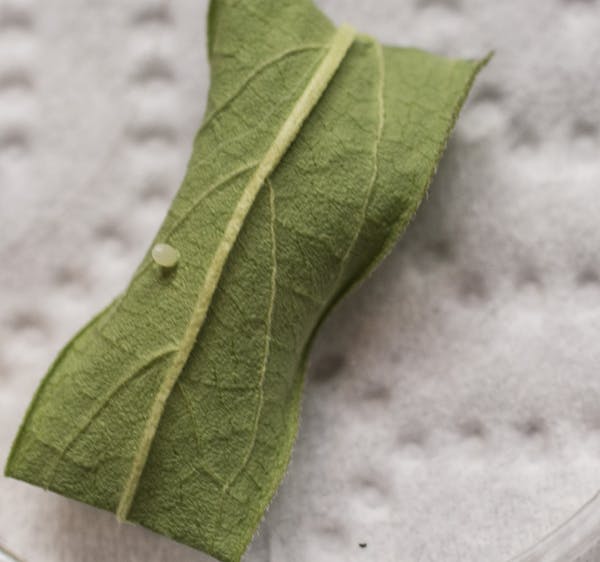Three federal agencies, two large Minnesota corporations, thousands of Rotarians, dozens of conservation groups and U.S. Rep. Betty McCollum announced their support Monday for a major initiative to save pollinators in the St. Croix River valley.
The "Pollinator Pledge," as it's known, seeks to restore habitat for monarch butterflies, bees and other pollinators in the sprawling St. Croix watershed. That area stretches north from the Mississippi River nearly to Lake Superior and includes land in both Minnesota and Wisconsin.
"Your actions, to me, demonstrate what good government is all about," Chris Stein, superintendent of the St. Croix National Scenic Riverway, told about 80 people who gathered at Andersen Windows in Bayport to kick off the initiative.
Volunteers so far have pledged 13,000 hours to plant pollinator habitat.
The distinctive monarchs represent the urgency of restoring lost habitat. Their numbers along the St. Croix have declined significantly in recent years, biologists say, as have other pollinators such as bees, beetles, bats and hummingbirds.
The pledge announced Monday doesn't include opposition to pesticides, including a class known as neonicotinoids that many conservationists blame for the global decline of honeybees and other insects.
Still, speakers at the event said they're committed to improving the fortunes of pollinators by restoring milkweed and other flowers and plants essential to their survival.
Saving the pollinators will save the nation's food supply, they said.
"The Pollinator Pledge allows us to take action in our own areas of influence," said Marlene Gargulak of Rice Lake, Wis., governor of the 3,000-member Rotary District 5960.
The National Park Service, U.S. Fish and Wildlife Service and U.S. Forest Service are leading the initiative. Andersen Corp. has joined the pledge drive, as has Xcel Energy.
The list of 71 partners signed up includes schools, environmental groups, lake associations, Boy Scouts, a baseball team, an arts center and a gun club.
Jonathan Moore, a St. Croix Riverway park ranger, said a pending federal grant could provide volunteers with seed and help educate the public about the importance of saving pollinators.
Monday's announcement comes just days after Fish and Wildlife Director Dan Ashe said his agency has dedicated $4 million annually over the next five years to support monarchs.
The money will be shared with partners to conserve monarch breeding and migration habitat in priority areas throughout the country, including Minnesota. Seeding native milkweed along the prairie corridor that follows Interstate 35 from Duluth to Texas will be part of the effort.
McCollum, one of several speakers at Monday's event, reminded volunteers that they were leading by example.
"Together we share this planet," she said. "What will happen here will be replicated throughout the United States."
Information about conservation efforts to save the monarch is available at fws.gov/midwest/monarch.
Kevin Giles • 651-925-5037
Minnesota state senator's burglary arrest puts private family drama in the election year spotlight
Minneapolis pushes to recruit more employers for youth internship program

Study: Minnesota's sex offender system is 'failed investment'

